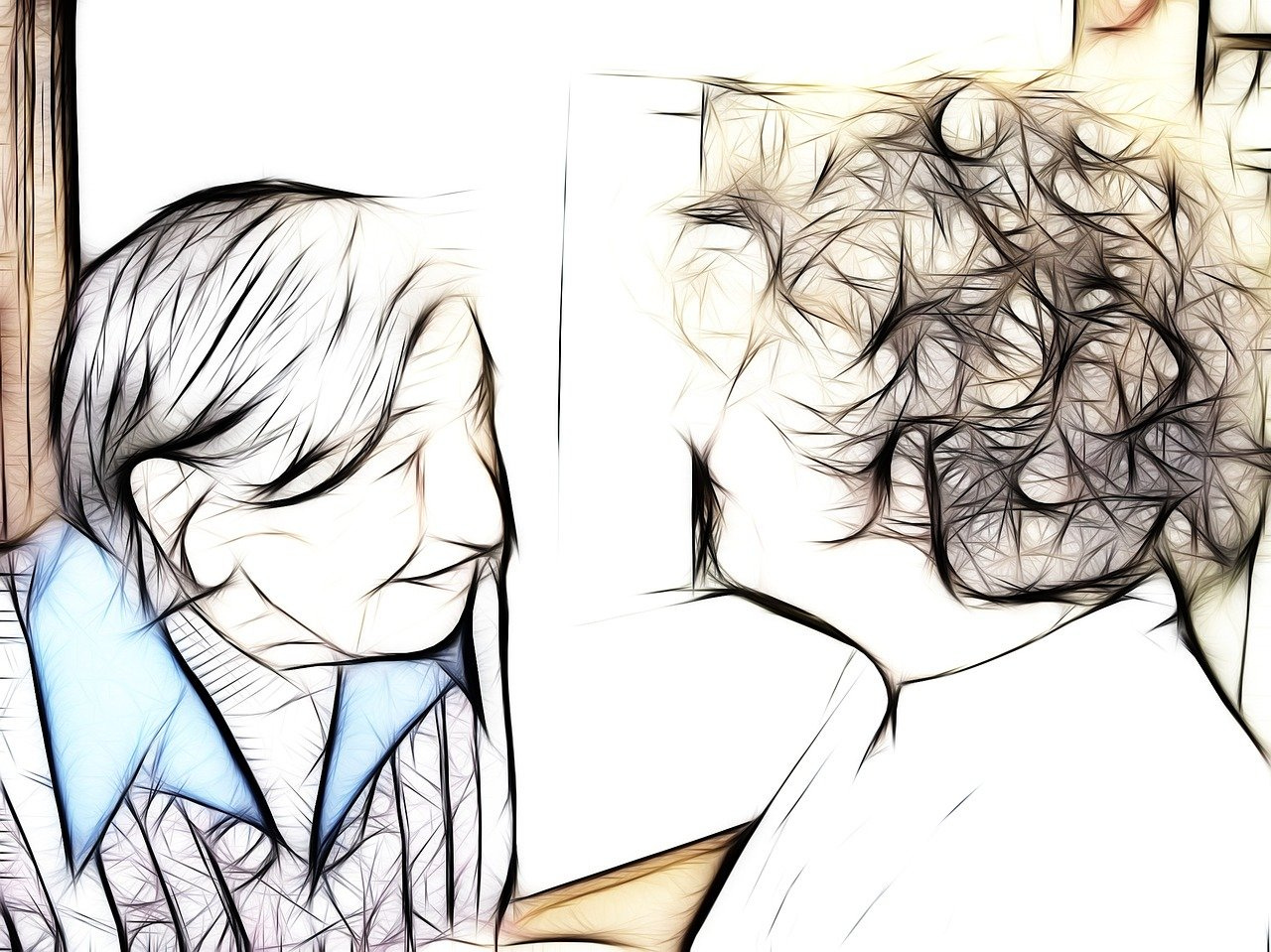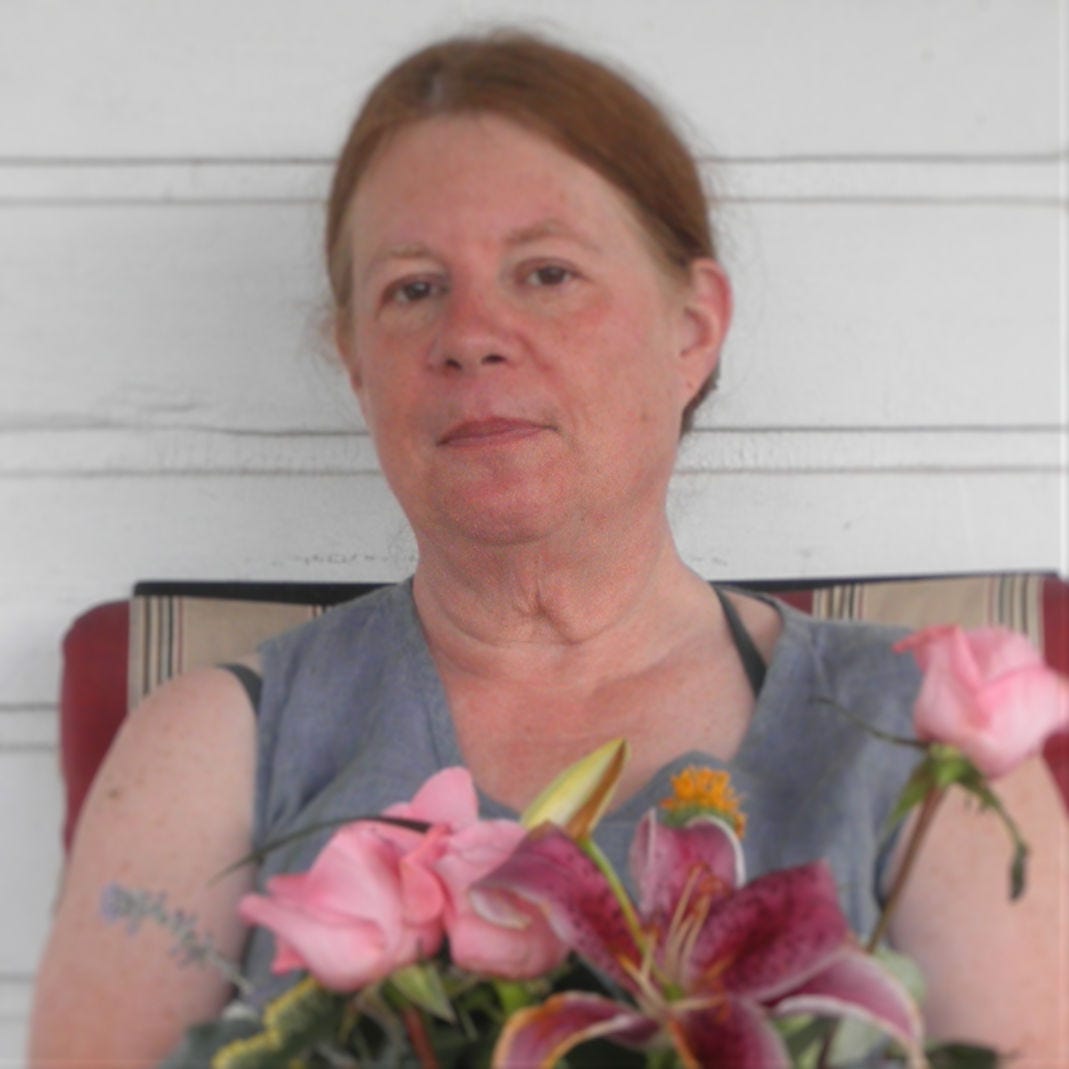“Tikkun Olam” – a beloved and much used Hebrew phrase, employed by Jews of all denominations - means “to heal the world.” I have found that the world can be healed, one person at a time, especially if that person is your mother.
As I emerged from late adolescence into early adulthood, my mother and I did not have a good relationship. Our views diverged, encompassing body size, clothing, social attitudes, duty to family, and freedom. One thing we never differed on was books; my mother passed on to me a love of books and reading and that’s a subject we could always talk about.
I moved from Pittsburgh, PA to Philadelphia—met my husband— and relations pulled apart even more. There was a strain when my mother and I were together and I talked to her less and less. Long periods of estrangement became usual.
This uncomfortable situation lasted until the year 2011, when I was informed that my mother was experiencing the early stages of Alzheimer’s Disease.
My mother had been married twice. First to my father, who heartbreakingly died at the age of 44; several years later she married Donald Bernson who died in 2008. So she was living alone at this time; her two sisters lived nearby and she had loads of friends. She was busy with lunches, trips to Pittsburgh’s many fine museums, attending concerts and plays. But those closest to her began to notice anomalies in her speech and behavior, which led to a visit to her doctor, tests, then a visit to a neurologist, more tests, and the diagnosis was confirmed.
When I heard the news about my mother’s condition, something quite odd happened and it changed everything.
A thought bolted through my brain—and this was me, who never prayed and certainly did not consult my long-gone father for advice—“What would Daddy want me to do?” And the answer came immediately: “Help take care of your mother and try to get along better with your sister.”
Writers from long ago used to refer to “Zephyr” which I found means, among other things, a sweet wind from the west. A soft, westerly wind. I felt that wind, blowing away forever the ashes that accumulated, the burnt waste of the connection between my mother and myself. I had been changed and I was ready to follow what my father wanted me to do. Who was I to question my father’s voice?
We had moved from suburban Philadelphia to rural northeastern Pennsylvania in 2001; the nearest town was Bloomsburg, PA. It was a five-hour, diagonal drive across the state from my home to Pittsburgh, and I began making that drive on a regular basis. I was nervous at first about what would happen between my mother and me, considering our history; but that sweet wind affected her in the way it had cleansed me. She never mentioned anything about our former differences and expressed joy upon my arrival. Until she died in 2015, the ashes never piled up; the wind had swept them away permanently.
I noticed immediately that my mother said the same things several times over and repeated questions three and four times. Other than that she was highly functional. One thing must be pointed out here: I had been privileged to work hands-on with intellectually and physically challenged adults and from the beginning, with no training or experience, I enjoyed it. I could see that most others were afraid of these people and wanted to distance themselves. Their families didn’t bring them home for Christmas or any other holidays; a father of one of the women I worked with would bring his young daughter home one weekend a month, but refused to enter the house where she lived with others like her. My point is that I am NOT a superior human being; I am a person who simply isn’t bothered by differences.
This quality I thank God for, and it made my visits to my mother into the “triumph” included in the title of this essay.
At the beginning of my visits, my mother still lived in the same apartment she occupied with my step-father. It had a spare bedroom where I stayed. While the Alzheimer’s was still in the first stage my mother moved about freely; she loved the outdoors and took a long walk every morning through small parks and quiet cemeteries. Soon, sadly, she worsened and had to be moved to what is called a “facility.” It was a huge, antiseptic, overly decorated behemoth of a building; however, it was not locked down. But it was located on the main thoroughfare that ran through the neighborhood and there was no place to take a walk. My mother tried, almost got into a traffic accident, and was told she couldn’t take walks. So, not giving in, she walked in circles, around and around the building.
I think my mother hated it there but she didn’t complain. I did see her standing at the window, gazing longingly outside at life. I was happy when I learned that a small family of deer lived within a stand of trees and bushes within sight. That gave her joy but my heart hurt like crazy to see her yearning, a caged bird.
I was going to keep to my father’s gentle commands; I would make sure that, at least when I was there, she wouldn’t just stand at windows and long to be out. I would take her anyplace she wanted to go, I would drive all over Pittsburgh if needed, just to wipe that image away.
It was at this point that complications occurred. I had noticed that although her sisters lived in Pittsburgh, they only saw my mother once a week, on a Thursday. And the program was always the same: lunch and clothes shopping. I was present on some of these outings and at first I was mystified. These outings always lasted three hours, almost to the minute! I felt as if I was in a fog; why were things like this? Also, when my sister came to visit from Baltimore she never stayed with my mother in the second bedroom, but at the Marriott Hotel. Again; why? My mother and I had so much fun in the mornings, sipping orange juice, watching the TV news, and talking, talking, and laughing. Why was my sister absenting herself?
The fog lifted eventually and I knew. My aunts and my sister couldn’t tolerate being with my mother for any more than very short periods. Her constant repeating of words, phrases, and questions disturbed them to that point. Oh, how it hurt! It was just like my former job, where the families distanced themselves so firmly from their children…
I went ahead with my plan and pushed this quite noxious information out of my mind. And I made sure that my mother had a grand time. We took “joy rides” where we just drove all over Pittsburgh, into neighborhoods we’d never been and my mother, in a state of extreme excitement, looked at everything. We stopped in Starbucks and drank coffee and a funny thing would always happen there. She’d urge me to eat rich pastries and I reminded her that those foods were fattening. She’d wave my protests away—and we’d laugh…(She always used to tell me I was too fat, in the old days.)
I took her to the Pittsburgh Zoo. We took a long, blissful walk in Schenley Park, one of Pittsburgh’s superb urban parks. No shopping, no fancy restaurants. After a day of sight-seeing we’d be exhausted and mostly have pizza delivered. Oh, what marvelous fun…
I have two points to cover to make this memoir complete. One is laughter. My greatest joy during all these visits was being able to make my mother laugh—and it was easy. I think she forgot all the old family stories and I am blessed with a good memory, so I’d entertain her that way. One thing I always said to make her laugh was: “President Obama thinks I should visit you as much as I can. He keeps extending the weeks of unemployment.” (I had been laid off from a job at that time.) One day we never left the apartment; we sat all day and talked.
I would never need a camera to remember my mother’s eyes then. When I reminded her of funny things that Don, her second husband, had said, her eyes would shine and it looked as if she was going to cry but she didn’t; she just laughed uproariously. And there was no end of stories…While driving around Pittsburgh I would do slightly dare-devilish things, nothing really scary, to make her laugh. Once I made a huge, mighty U-turn in a big intersection where it was not allowed. She looked at me sideways and said, “You weren’t supposed to do that, were you?” I just shrugged, and, of course, she laughed.
Pittsburgh is not a completely neat, manicured city because it’s so rocky and hilly. At the time I was thinking about writing a novel and placing the story in a very wild and untended place that lay between Oakland, where the universities and hospitals are, and downtown. The story would be centered around an abandoned mansion, previously owned by a Jewish family.
“Let’s go over there!” I urged, jumping up, holding my Pittsburgh map. “Let’s see what it’s like.”
My mother needed no coercing. We found the street, called Allequippa Street, and I almost blew a tire, climbing up the hill. But we got to the top of Allequippa Street and there was actually an abandoned house there! My mother, full of joy, was looking into the windows and trying to get the door open. No luck. So we jumped over dangerously jagged rocks and explored. Lodged in a bunch of bushes was an artificial owl which my mother pulled out. I ended up taking it home with me and I still have it.
Never, never, never—will I forget the sight of my mother standing at the summit of Allequippa Street, gazing out, the sun shining, the view superb. What a change from standing, yearning, at a window…I told myself that at least I’d given her that.
Soon after, circumstances worsened. My mother’s disease had progressed and she was put into a new “facility”—a locked one. I saw her there twice before she died. It was unbearable. I was allowed to take her out but a lot of life had leaked away from my mother’s psyche and it wasn’t desirable anymore.
One last anecdote: right before this transfer took place my mother stood up on a kitchen chair that had roller wheels. She fell flat over onto the floor and of course I was terrified she’d broken her hip. But, fortunately no—just a lot of heavy bruising. That’s when the decision was made to find a place to keep her safer. But she was not allowed to be left alone. So until the family found a person to care for her, I stayed for a week there. But my mother remained in a tranquil mood, did not complain of pain, and I had no “breaks” but it didn’t bother me.
I was not, nor am I, perfect. Twice during my visits I had to leave early because my mother was too much for me and didn’t know me. It hurt.
Once the carer was in place I was free to go home, and during the drive my phone rang. It was one of my aunts, who said “Thank you, Leslie.”
Leslie Golding Mastroianni had a Bachelor of Arts degree in English Literature and Master of Education in Counseling. As a counselor, she worked at the Devereux Foundation in suburban Philadelphia and several other community and family-based mental health facilities. She has been writing since the year 2000. Her novel, Buying A Year, was published in 2004. She is a teacher and shares informal talks and lectures on writing to children’s groups, adolescents, and retired people living in various homes and facilities.






Poignant, moving and motivating.